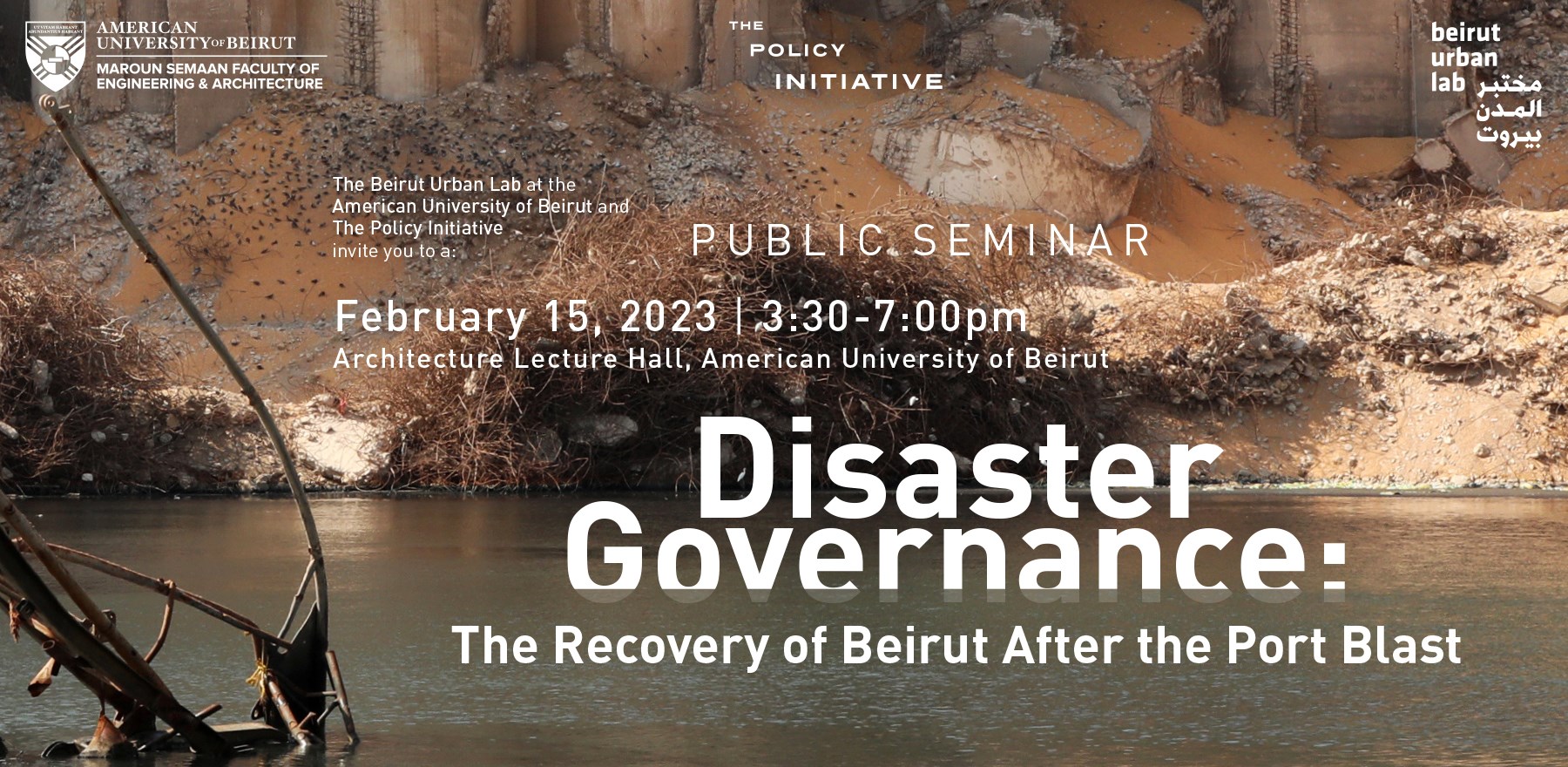Disaster Governance: The Recovery of Beirut After the Port Blast

The Beirut Urban Lab at the American University of Beirut & The Policy Initiative cordially invite you to a public seminar titled:
Disaster Governance: The Recovery of Beirut After the Port Blast
Date: Wednesday February 15, 2023, 3:30-7:00pm
Location: Architecture Lecture Hall, American University of Beirut
This event will be live-streamed on the Department of Architecture and Design (ArD)'s Facebook page.
Program
3:30-3:45
| Welcome & Introduction
|
3:45-5:00
| Chair and Moderator:
|
5:00-5:15 | Coffee Break |
5:15-6:30
| Chair and Moderator:
|
6:30-7:00
| Closing Remarks Sami Zoughaib (TPI) |
Concept Note
The Beirut Urban Lab (BUL) at the American University of Beirut and The Policy Initiative (TPI) are investigating the actors and governance processes of the Beirut Port blast’s recovery focusing on two intersecting tracks: one examining governance at the level of international organizations and the state, and one mapping the range of actors who have intervened to provide goods and services in the neighborhoods affected by the blast.
The first track explores the new conditional aid program co-developed by the World Bank, the European Union and the United Nations, titled Lebanon’s Recovery-Reconstruction-Reform Framework (3RF). The 3RF belongs to the new aid architecture for so-called “fragile” contexts, which takes the shape of what has been referred to as “country platforms” that should facilitate more coordinated, adaptive, scalable, and context-specific approaches in aid delivery. Lebanon’s 3RF country platform is distinguished by its institutionalization of civil society engagement through the formation of a Consultative Group that includes 15 Civil Society Organization (CSOs), selected after a call for interest.
In the seminar, we discuss the results of a study exploring the extent to which the 3RF has contributed to the adoption of reforms, reflecting on aid effectiveness in contexts of political (un)settlement. To do that, we qualify the reforms prescribed by the 3RF in terms of legislative implications and resources required, and trace them along the country’s policymaking track. We distinguish between progress on novel reforms introduced by the 3RF and those that were previously part of the domestic policy agenda. We also assess the 3RF’s reform yield in relation to past reformist aid programs (Paris I, II, CEDRE).
The second track explores actors of the recovery in the neighborhoods affected by the blast, focusing on the types of goods they provided. We designed and administered a survey questionnaire in July and August 2022 to more than 85 actors (political groups, faith-based organizations, international NGOs, national NGOs, universities, initiatives and collectives). The presentation presents the mapping and profiling of the actors in terms of age, size, locational characteristics, partnerships, and actors’ portfolio of good provision. We identify a complex governance landscape ranging between actors privileging particularistic goods such as cash assistance, support packages, minor home repairs, and actors favoring high-value, collective goods related to open space rehabilitation, community facilities, full home repairs and heritage preservation, and those delivering a hybrid set of goods.